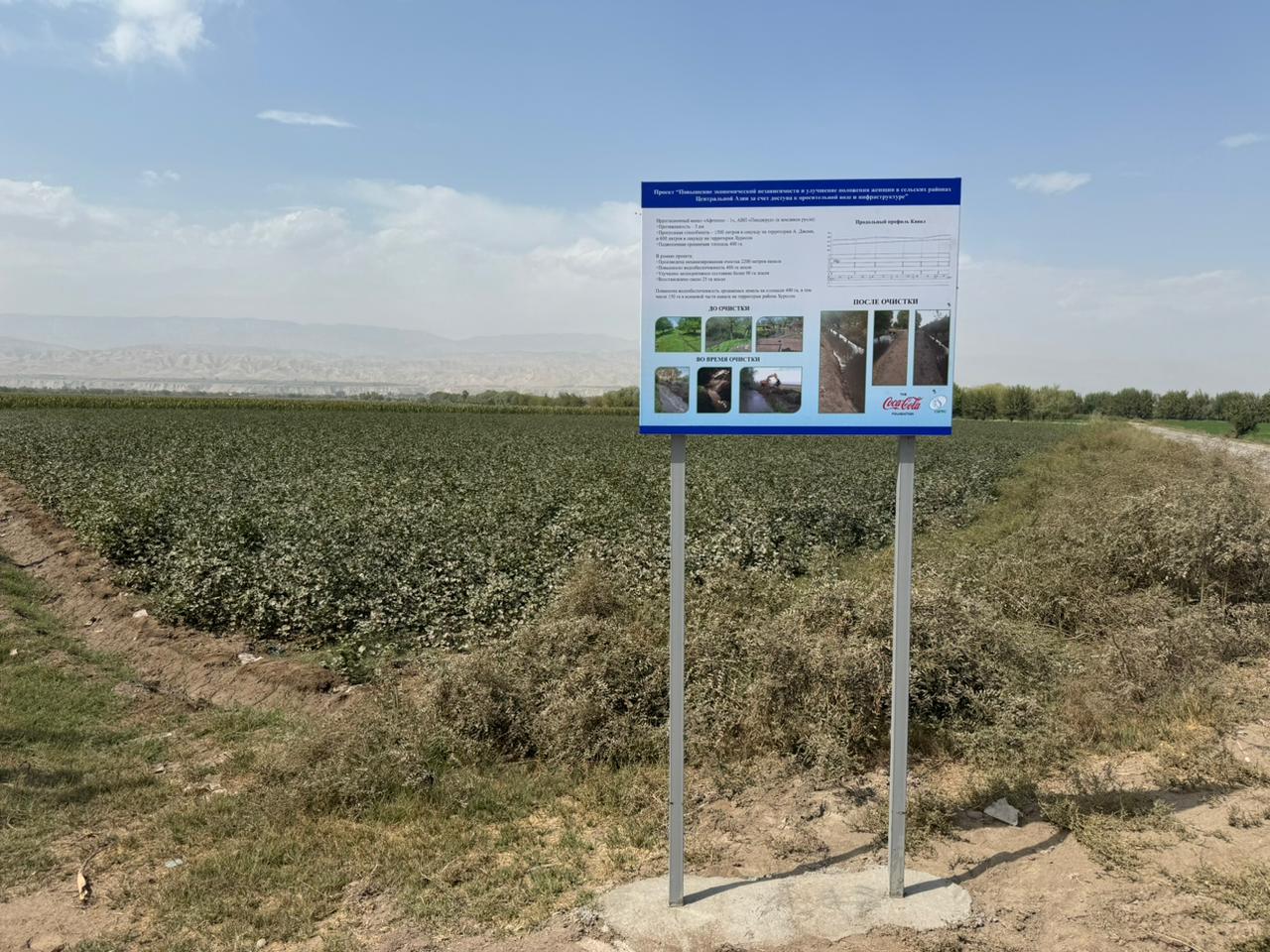Abdurahmoni Jomi - On September 17, an event was held in Khatlon Region to familiarize government representatives, the public and the media with the results of the project “Increasing Economic Independence and Improving the Status of Women in Central Asia through Access to Irrigation Water and Infrastructure” to rehabilitate canals, rehabilitate abandoned agricultural lands and install drip irrigation systems in the pilot Panjrud Water Users Association (WUA).
This project is focused on rational water resources management in the region and is implemented by the Regional Environmental Center for Central Asia (CAREC) with the financial support of the international charity “The Coca-Cola Foundation”.
The event was attended by representatives of the Agency for Land Reclamation and Irrigation under the Government of the Republic of Tajikistan, the Committee on Environmental Protection under the Government of the Republic of Tajikistan, the management of the Panjrud Water Users Association, the representative of the local government of the district A. Jomi, the international foundation “The Coca-Cola Foundation”, and CAREC.
The project, launched in the Republic of Tajikistan in April 2024, has successfully solved the problem of water deficit by introducing new irrigation methods and technologies. This allowed re-seeding of agricultural crops. Dekhkan farms of the Panjrud WUA were able to reduce dependence on irrigation water through rehabilitation of canals and restoration of abandoned agricultural lands, which led to increased productivity and strengthened the sustainability of agriculture in this region. To achieve its objectives, the project worked closely with local communities, government agencies and water authorities. This collaboration was aimed at identifying WUA sites that require the most attention in terms of irrigation water supply and infrastructure. Valeriya Orlova, Project Manager of the Regional Environmental Center for Central Asia in Tajikistan, shares these successes.
The Panjrud WUA conducted comprehensive irrigation rehabilitation on an area of 400 hectares, improved the reclamation condition of more than 90 hectares of land, and restored the usability of about 25 hectares of land by cleaning the 3 km long Avgonsho-1 irrigation canal. In addition, the Nusratullo Mahsum drainage was rehabilitated along 5 km, which resulted in improvement of irrigated lands on 3 thousand ha in A. Jomi and 1-1,500 ha in Khuroson district.
A 1 ha drip irrigation system was also installed, which will reduce irrigation water use by 50-70% per year and increase crop yields by 20-30%. The introduction of these technologies is expected to increase crop yields by 2-3 times. Cotton, watermelons, corn, tomatoes, cucumbers, wheat, as well as fruit trees: apricot, apple, almond, cherry are grown in the project area. The project has demonstrated its positive impact, reaching more than 1,200 dekhan farms and about 700 households, benefiting more than 5,000 people in total.

.jpeg)
Reference:
The Regional Environmental Center for Central Asia (CAREC) is an independent, non-political, non-profit international organization, which was established in 2001 by the governments of five Central Asian countries, namely the Republic of Kazakhstan, Kyrgyz Republic, Republic of Tajikistan, Turkmenistan, Republic of Uzbekistan, as well as by the European Union and UNDP in accordance with the decision of the 4th Pan-European Conference held in 1998 in Aarhus, Denmark. CAREC has a unique mandate from the five CA countries and its mission is to assist Central Asian countries in solving their national and regional environmental problems.
More about CAREC at https://carececo.org/main/.
All about climate in CA at https://centralasiaclimateportal.org/.
"The Coca-Cola Foundation is an international charitable foundation whose mission is to promote positive change in communities in all countries where The Coca-Cola Company operates. The Foundation funds organizations and projects around the world that make lasting and measurable contributions to global challenges in areas such as sustainable water access, climate change, the circular economy, economic empowerment, and disaster prevention and management. To support initiatives in these areas around the world, the Foundation, since its founding in 1984, has awarded more than $1.5 billion in grants.
More about the Foundation at https://www.coca-colacompany.com/social/coca-cola-foundation
